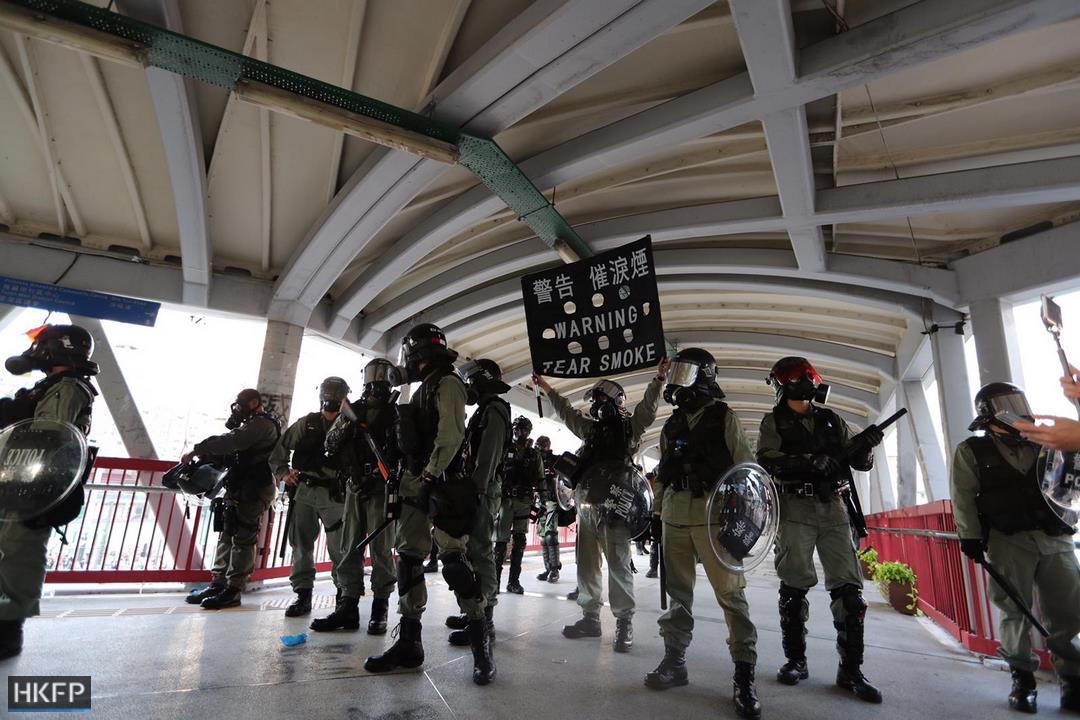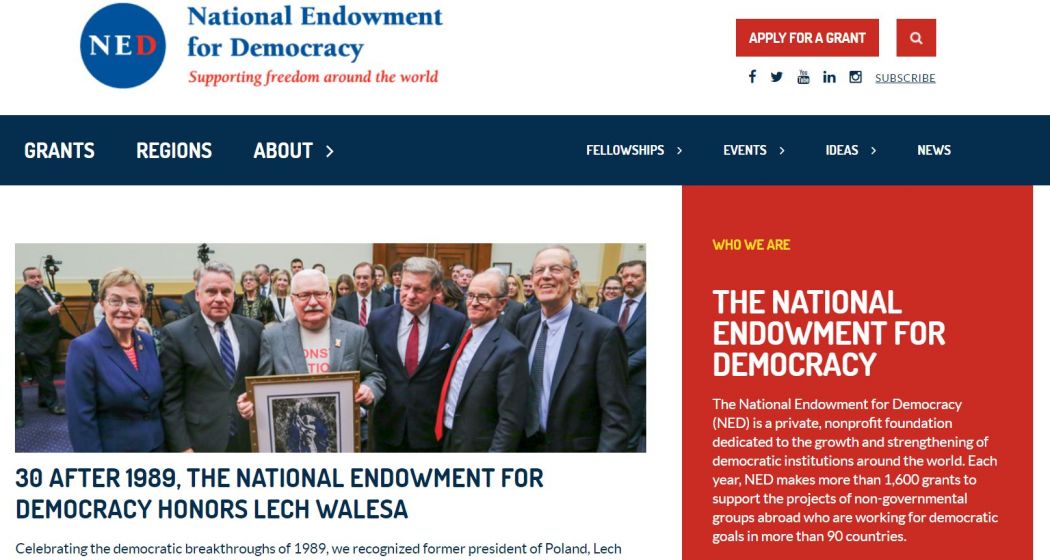Entitled “A Smoking Gun,” one of the pieces doing the rounds to “prove” that the current crisis in Hong Kong is foreign-backed with no groundswell of support can be found here. The piece is instructive as a patchwork of half-truths and outright lies, so I thought I’d prove it to be such.
First, the piece relies heavily on an article here by Alan MacLeod of the Glasgow Media Group. However, the Smoking Gun’s conclusions diverge from MacLeod’s article in important ways.
The Smoking Gun piece starts out by saying – without citing any evidence – that “Hong Kong residents have long said the Western media is producing biased, pro-radical coverage in hugely disproportionate amounts. They’re right.” There follows a graph based on Alan MacLeod’s original article which compares Hong Kong to Haiti, Ecuador and Chile.
On the left, there is a box which indicates whether there have been multiple direct deaths and on the right are bars which show the number of articles in the New York Times and on Fox News.

The other countries have had deaths where Hong Kong has not (perhaps MacLeod’s article was written before those here died, or perhaps those who died here don’t qualify as “direct” deaths), and where the other three countries have had little coverage, Hong Kong has had lots – about ten times as much.
The Smoking Gun then charts a different course. Alan MacLeod’s point was that “US client states like Haiti or Ecuador” get a much easier ride in the Western media. I think he’s right – but only partially. Hong Kong is a global city, not to mention a global financial hub, in a way that Haiti, Ecuador and Chile are not.
But whether or not Hong Kong gets more attention than it deserves has no bearing the righteousness or otherwise of the protests here. Indeed, MacLeod himself at no point says that the protests in Hong Kong are being misrepresented or wrongly characterised, merely that Hong Kong gets disproportionate coverage.
The Smoking Gun, however, shifts gear. It accuses the press of a systemic malaise. Quoting Tom Guendert, apparently a Hong Kong commentator, though not one whom I’ve been able to find anything more than a Facebook page about, the Smoking Gun goes on to argue that the press has failed to make the case that “Hong Kong has won the war to maintain stability… the dollar has not been devalued… direct police action casualties have been avoided.”
I find it hard to characterise Hong Kong’s current situation as stable, I don’t regard the dollar-peg as being proof or disproof of that stability, and the final statement is at best willfully ignorant and at worst a straight lie. I also find it hard to ignore the numerous pieces in the local press – the South China Morning Post and the Chinese-language press – that do argue these points.

Onwards:
The Western media continuously conflates the violent radicals demanding to “liberate Hong Kong from China” with the actual majority residents of Hong Kong, who in truth want the exact opposite: they don’t want independence from mainland China, but want a positive relationship.
If the Western media is conflating, the author himself is obfuscating. The protesters, both peaceful and violent, have never agitated for independence, and most have been very careful to avoid the term. Further, I agree that the majority of residents, including the protestors, want a positive relationship with China – but that positivity has to be based on China honouring the promises it made in the Sino-British Joint Declaration and the Basic Law.
The underlying cause of the protests is that China has done neither. China two years ago declared the Joint Declaration as being “now history” without “any practical significance or force.” It has “re-interpreted” the Basic Law with increasing frequency, and has now set aside article 158 of the Basic Law, which does grant the courts the power of interpretation, in favour of article 160, which China now reads as reserving that power to China.
The next section, however, is probably the most misleading. Based on MacLeod’s original, but again with a very questionable inference, the author proudly presents “PROOF OF FUNDING” (in capitals, in case you needed to know). The proof is based on a link in the original, which the author does not reproduce, but which I do, here. The National Endowment for Democracy, has spent US$22 million since 2014 in China and Hong Kong.

The NED is a rather weird hybrid NGO. It was set up in the Reagan era, with broad bipartisan support, and is funded by congress. Yes, the vision of democracy it is set up to promote is the American one, and that vision is not universally appealing. But the NED is not formally an arm of the American state; indeed, it appears to have been set up specifically to distance itself from the state.
Click the link above and make your own judgement. And, in the interests of fairness, try here and here (both from organisations that don’t say where they get their money) for evidence that the NED is a CIA front.
As to the US$22 million, this particular smoking gun on closer inspection appears to have been loaded with paintballs rather than bullets. The grants – for they are such – have been for 78 projects, of which nine and only nine have been in Hong Kong, with the remaining 69 in mainland China. Those in Hong Kong have received a total of US$1,511,220, with about half of that in 2016, and a quarter each in 2017 and 2018. (The NED website does not include figures for 2019 anywhere.)
These grants are not for “Manufacturing Molotov Cocktails” or “Instructing Students in Violent Protest” – five minutes on YouTube is more than enough for either – but on mundane stuff such as Expanding Worker Rights and Democracy, Supporting Civic Engagement and Strengthening Democratic Institutions. Again, it’s all in the link.
To throw the author’s words back at him: “an internet search taking literally 0.02 seconds will give any interested party the truth,” but to get to the truth, it’s the 20 minutes reading after the 0.02 seconds that distinguishes the critical mind from the dupe.
The Smoking Gun goes on to declare that this willful ignorance of foreign funding is because “China is seen as the enemy of the West.” If this is true, it is because China, in the infamous Document Number 9, declared itself to be the enemy of all Western democratic values. You reap what you sow.

We then come to the 2-million march, which the Smoking Gun says “never happened.” The best estimate I can find is Reuters, which shows a wide range of estimates without forming any definitive conclusions. But whether the number is 338,000 (the police), or about 450,000 (Reuters), or more, there is no doubt that the march was big.
Sure, more people stayed at home than came out, but that a majority of residents didn’t march is not to say that they didn’t support or – more importantly – that they actively objected to its objectives. And, no matter which figures you take, the pro-government marches have been few, far between, and dismally attended.
KEEP THE FAITH on the TRUTH CAMPAIGN, the author exhorts us in concluding. The truth is that the “Smoking Gun” winds half-truths and misrepresentations into a narrative that distorts the truth. Yes, the Western media over-represents Hong Kong, and perhaps part of that bias is that Hong Kong is part of China and that the West has fallen out of love with China – but Hong Kong is globally important in a way that Haiti, Ecuador and Chile are not, and it was China that declared itself hostile to Western values.
Yes, a weird non-part of the US Government, possibly a (very ham-fisted) CIA front, has funded initiatives in Hong Kong – but bland initiatives. Yes, the press were very ready to accept the 2 million number on that march, but it was a damned big march no matter which way you cut it – I was on it, I know.
The sad thing is that there is a bigger point. For the time being, despite the alleged police brutality to journalists, Hong Kong’s press remains free. The internet remains uncensored. Although the police have appeared cavalier when it comes to procedural matters, the rumours of rape, beatings and rendition to China appear just that.
And, as I write having just cast a vote after queuing with my fellow Hongkongers, we have at least a tiny measure of democracy. “Anyone who bets against the people of Hong Kong will lose,” the author concludes. The Chinese Communist Party did. Look where it got us.
